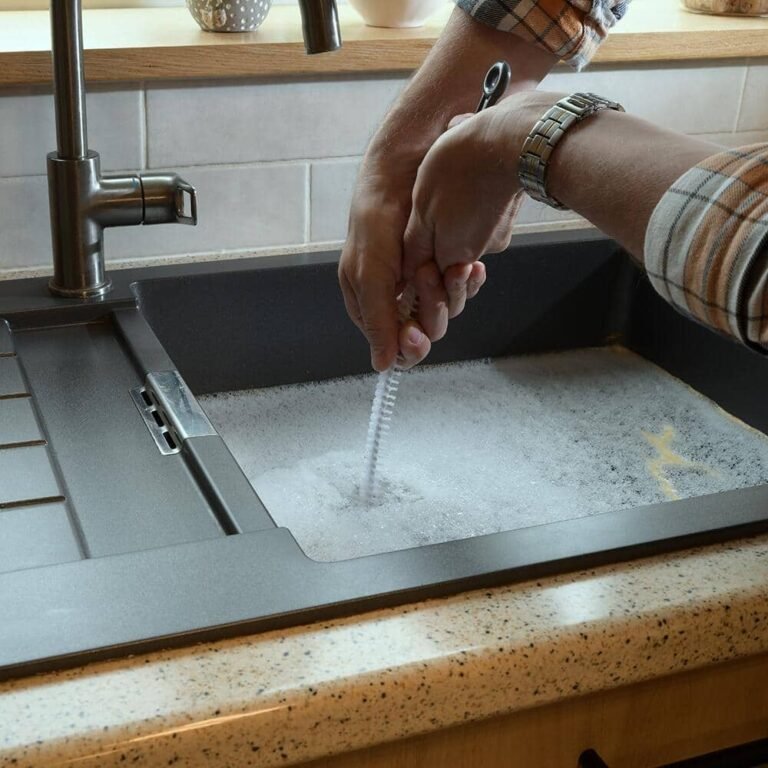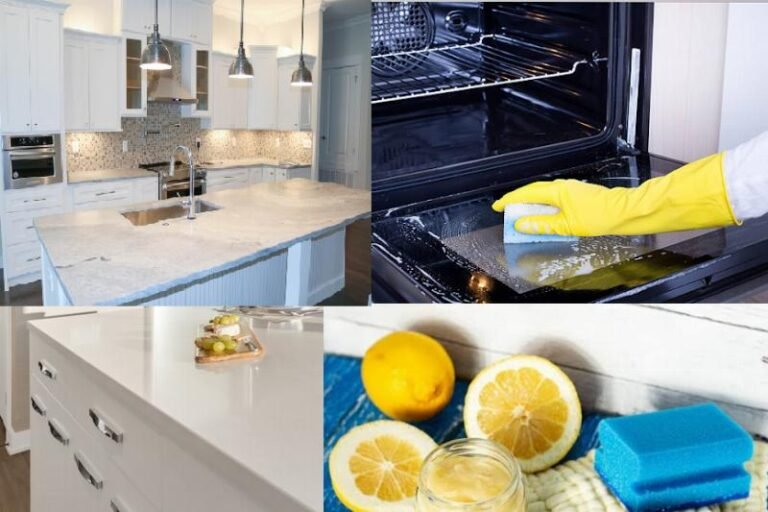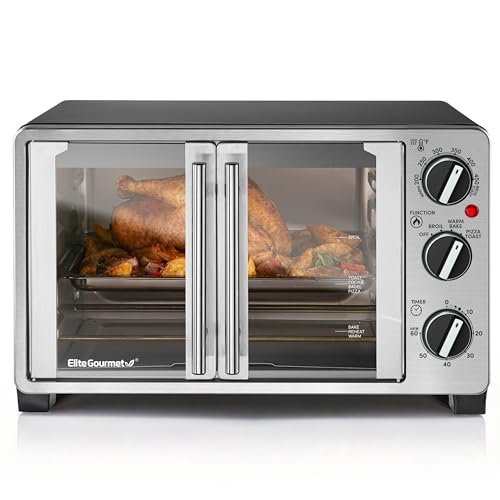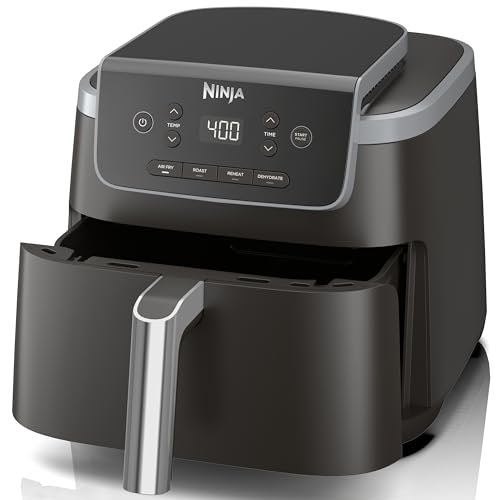How Often Should Commercial Kitchen Hoods Be Cleaned: Essential Guide
Imagine walking into your commercial kitchen and being greeted by the fresh aroma of the day’s specials, rather than the lingering smell of grease and smoke. This isn’t just a dream—it’s a reality when your kitchen hoods are properly maintained.
But how often should you really be cleaning those hoods to ensure a safe and efficient workspace? You might be surprised at the answer. It’s not just about keeping things looking clean; it’s about protecting your investment, your staff, and your customers.
We’ll dive into the crucial details of kitchen hood maintenance and uncover the secrets to a spotless and safe kitchen environment. Prepare to discover how regular cleaning can transform your kitchen operations, boost your team’s morale, and enhance customer satisfaction. Stay with us, because your kitchen’s future might just depend on it.
Importance Of Regular Hood Cleaning
Regular cleaning of commercial kitchen hoods is crucial. It ensures a safe environment. Grease and grime accumulate quickly. This buildup can cause serious problems. Regular cleaning prevents fire hazards. It also improves air quality. Clean hoods help maintain efficient airflow. This reduces energy costs. Health inspections become less stressful when hoods are clean. Avoiding penalties keeps operations smooth.
Preventing Fire Hazards
Grease buildup in hoods is a fire risk. It can ignite easily. Regular cleaning removes this danger. It keeps the kitchen safe. Fire hazards can lead to costly damages. They can also harm staff and customers. Clean hoods reduce these risks significantly.
Improving Air Quality
Dirty hoods affect indoor air. They trap smoke and odors. Regular cleaning improves air quality. It ensures fresh air circulates. Staff and customers breathe easier. Good air quality enhances the dining experience. It also improves employee well-being.
Ensuring Efficient Airflow
Grease clogs ducts and fans. This reduces airflow efficiency. Cleaning ensures systems work properly. It keeps airflow optimal. Efficient airflow reduces energy use. It keeps heating and cooling costs down. Clean hoods help keep bills manageable.
Reducing Health Inspection Stress
Health inspectors check hood cleanliness. Dirty hoods can lead to penalties. Regular cleaning ensures compliance. It eases inspection stress. It keeps operations running smoothly. Cleanliness is a key part of health standards. Regular cleaning meets these requirements.
Factors Influencing Cleaning Frequency
Cleaning frequency for commercial kitchen hoods depends on cooking volume and type. Grease accumulation from heavy usage demands frequent cleaning. Regular inspections help ensure safety and efficiency, preventing fire hazards and maintaining airflow.
Keeping your commercial kitchen hoods clean is crucial for safety and efficiency. But how often should they really be cleaned? The cleaning frequency isn’t a one-size-fits-all scenario. It depends on several factors that are unique to each kitchen. Understanding these can help you maintain a safer and more efficient cooking environment.Type Of Cooking Operations
The type of food you cook greatly influences how often you should clean your hoods. Greasy foods like fried chicken or bacon produce more residue than steaming vegetables. If your kitchen specializes in high-grease meals, you might need to clean the hoods more often. Consider the nature of your menu—are you grilling, frying, or baking? Each method has its own impact on your hood’s cleanliness.Volume Of Cooking
High-volume kitchens require more frequent cleanings. If you’re serving hundreds of meals a day, your hoods collect grease and grime faster. In contrast, a small café with limited hours might not need the same cleaning schedule. Think about how busy your kitchen gets during peak hours. A bustling restaurant has different cleaning needs compared to a quiet diner.Local Regulations And Standards
Local laws and health regulations also dictate cleaning schedules. Authorities might require specific cleaning frequencies to ensure safety. These guidelines can vary by region, so it’s important to stay informed. Check your local health department’s standards and see how they align with your current practices. Are you meeting the minimum requirements, or could you improve? Have you ever wondered if your kitchen’s cleaning schedule truly matches your needs? By considering these factors, you can tailor a cleaning plan that protects both your staff and your diners. After all, a clean kitchen is a happy kitchen.Recommended Cleaning Intervals
Maintaining a clean commercial kitchen hood is crucial. It keeps the air fresh and reduces fire risks. Cleaning intervals depend on cooking volume. Let’s explore recommended schedules for different kitchen types.
High-volume Cooking
Busy kitchens require frequent cleaning. Every two weeks is ideal. Grease and grime build up quickly. Regular cleaning prevents hazards. It ensures optimal performance. Safety and cleanliness are top priorities.
Moderate-volume Kitchens
Mid-level kitchens can clean monthly. Less cooking means slower grease accumulation. Monthly cleaning balances safety and efficiency. It maintains air quality without excessive effort. Consistent schedules help avoid issues.
Low-volume Or Seasonal Operations
Seasonal kitchens need less frequent cleaning. Every three months is sufficient. Slow grease buildup allows longer intervals. Regular checks ensure cleanliness. Adjust schedules based on usage patterns. Keeping hood clean is essential.
Signs Your Hood Needs Immediate Cleaning
Commercial kitchen hoods play a vital role in maintaining safety. They remove smoke, grease, and odors from the air. Regular cleaning is essential. Ignoring signs of a dirty hood can lead to problems. Health risks and fire hazards can arise. So, watch for signs your hood needs cleaning.
Visible Grease Buildup
Check your hood for grease. If you see thick layers, it’s time to clean. Grease buildup can cause fires. It also affects air quality. Regular inspection can prevent problems.
Unusual Odors
Smells in the kitchen are a warning. A foul odor means your hood needs attention. Grease and dirt can cause bad smells. Cleaning will remove these odors. Fresh air is crucial in a kitchen.
Reduced Airflow
Poor airflow can be dangerous. If your hood isn’t pulling air well, clean it. Blocked airflow can lead to smoke and heat. This affects workers’ health. Ensure your hood works efficiently.
Benefits Of Professional Cleaning Services
Regular cleaning of commercial kitchen hoods is essential for safety and efficiency. Grease and grime build-up can lead to fire hazards. Professional cleaning ensures compliance with health standards, reducing the risk of violations.
Hiring professional cleaning services for your commercial kitchen hoods can be a game-changer. Not only do these services keep your kitchen safe and efficient, but they also save you time and effort. Imagine the peace of mind you’ll have knowing experts are handling this critical task.Expertise And Equipment
Professional cleaners come with specialized knowledge and tools. They know how to tackle even the most stubborn grease and grime. Have you ever tried scrubbing a hood with a regular sponge? It’s a tough job. Professionals use equipment that gets the job done faster and more thoroughly.Compliance With Safety Standards
Safety standards in commercial kitchens are rigorous. Are you confident you’re meeting all of them? Professional cleaners ensure your kitchen hoods comply with local regulations. This can prevent costly fines and ensure your kitchen remains a safe environment for your staff.Enhanced Efficiency And Longevity
Regular professional cleaning can extend the life of your kitchen equipment. Clean hoods allow for better airflow, which means your kitchen operates more efficiently. This can lead to lower utility costs. Plus, a well-maintained hood reduces the risk of equipment failure, saving you from expensive repairs down the road. Professional cleaning services offer expertise that’s hard to match. So why struggle with cleaning tasks when you can focus on what you do best—running your business?
Credit: www.averusfireservices.com
Diy Cleaning Vs. Professional Services
Commercial kitchen hoods need cleaning every three months to prevent grease buildup. Professional services ensure thorough cleaning, but DIY methods can save costs. Regular maintenance promotes safety and efficiency in the kitchen.
Keeping your commercial kitchen hoods clean is crucial for safety and efficiency. But should you roll up your sleeves for a DIY approach, or call in the pros? Each option has its merits and drawbacks. Understanding these can save you time, money, and possibly, your restaurant’s reputation.Pros And Cons Of Diy
DIY cleaning can be cost-effective. You might save a chunk of change by not hiring a service. Plus, it gives you control over the cleaning schedule. You can clean your kitchen hoods whenever it suits you best. However, DIY cleaning has its challenges. It requires time and effort, and you might not have the right tools or expertise. Improper cleaning can lead to grease build-up, which poses a fire risk. Think about your last DIY project. Did you have to run to the store for missing items? Or did you find yourself watching endless YouTube tutorials? DIY cleaning can be similar, which might not be ideal for busy kitchen staff.When To Hire Professionals
Professionals bring experience and specialized equipment to the table. They ensure thorough cleaning, leaving no nook or cranny untouched. This can significantly reduce fire hazards and improve air quality in your kitchen. Consider hiring professionals if your kitchen hoods haven’t been cleaned in a while. Have you noticed a lingering grease odor? Or is smoke not venting properly? These are signs that it’s time for expert help. Professional services might seem costly upfront, but think of it as an investment. It can prolong the life of your equipment and keep your kitchen compliant with health codes. Can you put a price on peace of mind and safety? In the end, the choice between DIY and professional services depends on your specific needs and circumstances. Whether you choose to take on the task yourself or call in the experts, regular cleaning is non-negotiable for a safe and efficient kitchen.Maintaining Cleanliness Between Services
Maintaining cleanliness between professional cleaning services is crucial for the long-term efficiency and safety of your commercial kitchen. While you might rely on experts to handle deep cleaning, consistent daily and weekly practices can significantly extend the life of your equipment. Have you ever noticed how a small daily effort can prevent bigger issues down the road? Let’s dive into practical tips to keep those hoods gleaming and efficient.
Routine Maintenance Tips
Routine maintenance is your first line of defense against grease buildup. Regularly check the filters and fans to ensure they’re working optimally. A simple wipe-down can often prevent the hardening of residues, making professional cleaning easier and more effective.
Consider setting a schedule for inspecting your hoods. A quick look every week can save you from hefty repair costs. Remember, the cleaner your equipment stays, the less strain it puts on the components.
Daily And Weekly Cleaning Practices
Daily cleaning is about tackling the small tasks that keep your kitchen running smoothly. Before closing, wipe down the exterior of the hood to remove any visible grease or dirt. This helps in maintaining the aesthetic and functionality of your kitchen.
Weekly, focus on a deeper clean. Remove and wash the filters in warm, soapy water. This not only ensures better air quality but also reduces fire risks. Have you considered involving your team in these tasks? A shared responsibility can instill a sense of ownership and pride in maintaining cleanliness.
Keeping your kitchen hood clean isn’t just about aesthetics. It’s about safety, efficiency, and the longevity of your equipment. With these daily and weekly practices, you’re not just maintaining cleanliness; you’re investing in the future of your kitchen. Are you ready to make these practices a part of your routine?
Cost Implications Of Regular Hood Cleaning
Regular cleaning of commercial kitchen hoods isn’t just a maintenance task; it’s a wise financial strategy. Many restaurant owners overlook this aspect, focusing only on immediate costs. But neglecting regular hood cleaning can lead to bigger expenses down the line.
Potential Savings
Regular cleaning can significantly cut down on energy costs. A clean hood allows your ventilation system to work efficiently, reducing energy consumption. Imagine saving a few hundred dollars each month just by keeping your kitchen hood spotless.
Moreover, insurance premiums could be lower for those who maintain their equipment well. Insurance companies might view your establishment as a lower risk, potentially offering better rates. So, consistent maintenance could mean financial rewards beyond mere savings.
Avoiding Costly Repairs
Skipping regular hood cleaning might seem like a minor oversight, but it can lead to hefty repair bills. Grease buildup can damage critical components of your exhaust system. This not only causes inefficiencies but could lead to complete system failures.
Consider the cost of replacing an entire ventilation system compared to scheduled cleanings. The latter is a fraction of the price. A small, recurring investment in cleaning can prevent large, unexpected expenses.
Have you ever faced a sudden, expensive repair? It’s a situation no business owner wants. By keeping up with regular hood cleanings, you’re safeguarding your investment and ensuring smooth operations.
Compliance And Legal Considerations
Regular cleaning of commercial kitchen hoods is crucial for safety and compliance. Local laws often mandate monthly cleaning to prevent fire hazards and ensure proper ventilation. Maintaining a clean hood also helps avoid costly fines and ensures a safe cooking environment.
Maintaining a clean commercial kitchen hood is crucial. It’s not just about hygiene. It’s about safety and legality too. Restaurants must adhere to fire codes and insurance policies. These regulations ensure a safe environment. Ignoring them can lead to serious consequences. Understanding these legal aspects is vital. Let’s delve deeper into the key areas.Understanding Fire Codes
Fire codes play a significant role in kitchen safety. They dictate how often hoods need cleaning. Local authorities enforce these codes strictly. Regular inspections ensure compliance. Failure to comply can result in hefty fines. In severe cases, it could lead to business closure. Fire codes aim to prevent potential hazards. Grease buildup increases fire risks. Regular cleaning reduces these dangers.Insurance Requirements
Insurance companies have strict policies for kitchen safety. They require regular hood maintenance. This prevents fire-related claims. Failure to clean hoods might void your policy. Insurers demand evidence of cleaning schedules. This proof is essential during claims. Regular cleaning also lowers insurance premiums. It reduces the risk of fire damage. Keeping compliant benefits your business financially. `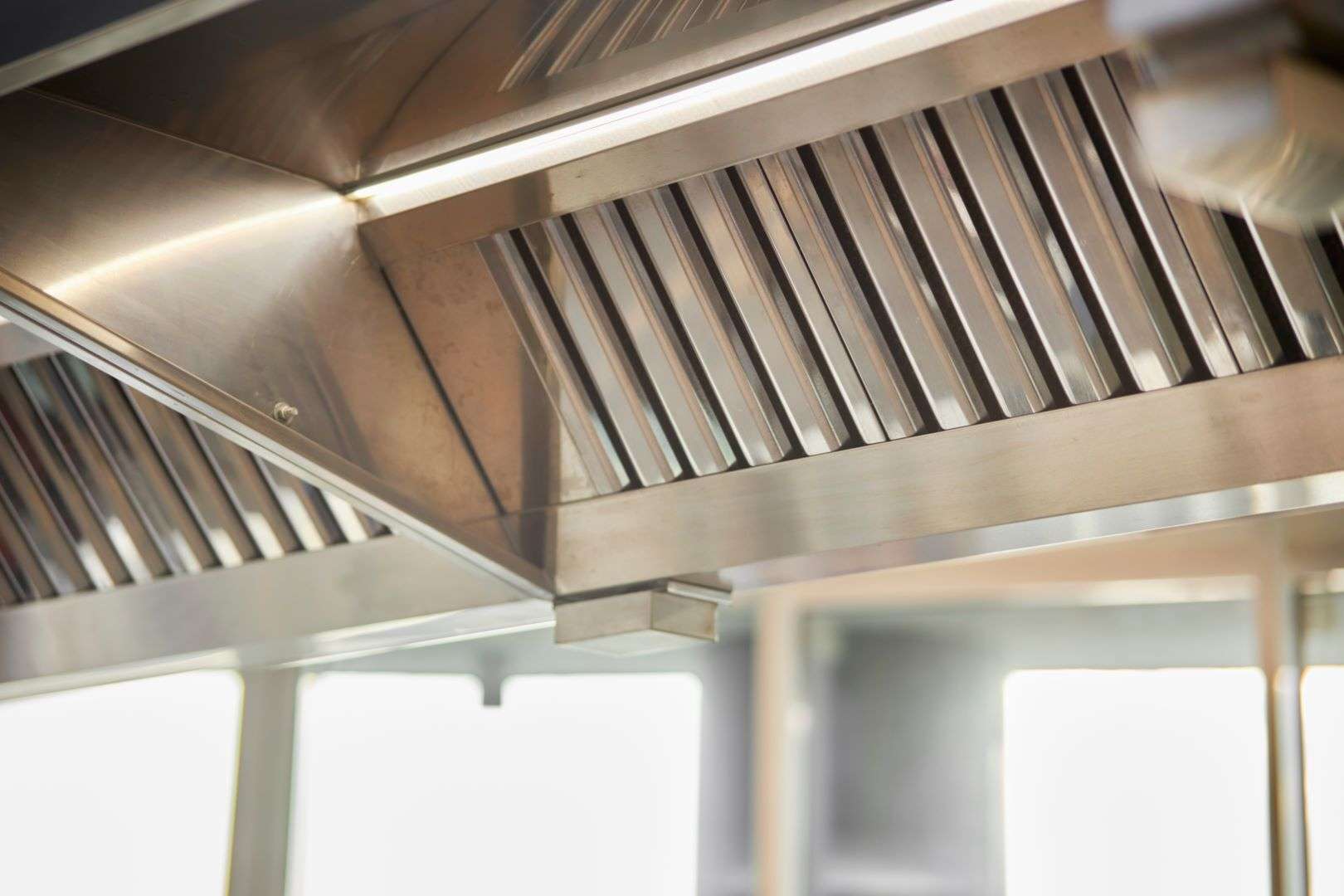
Credit: safekitchens.com

Credit: boh.ai
Frequently Asked Questions
How Often Should A Commercial Kitchen Hood Be Cleaned?
Clean a commercial kitchen hood every three months. High-use kitchens may require monthly cleaning. Regular maintenance ensures safety and efficiency.
What Is The Nfpa Code For Kitchen Hood Cleaning?
The NFPA code for kitchen hood cleaning is NFPA 96. This standard outlines requirements for commercial kitchen exhaust systems. Regular cleaning ensures safety and prevents fire hazards. Following NFPA 96 helps maintain compliance and enhances kitchen safety.
What Are The Rules For Commercial Kitchen Hoods?
Commercial kitchen hoods must meet local building codes and NFPA 96 standards. They require regular cleaning, proper ventilation, and fire suppression systems. Hoods should be installed by certified professionals and inspected annually for safety compliance. Ensure adequate airflow and clearances for optimal performance and safety.
How Much Does It Cost To Get A Commercial Hood Cleaned?
Commercial hood cleaning costs range from $100 to $500. Prices depend on hood size, location, and service frequency. Regular cleaning ensures safety and compliance, potentially lowering costs. Always choose a professional service for reliable results.
How Often Should Kitchen Hoods Be Cleaned?
Kitchen hoods need cleaning every three months. It ensures safety and efficiency.
Conclusion
Regular cleaning of commercial kitchen hoods is crucial. It ensures safety and efficiency. Grease and grime build up quickly. Ignoring this can lead to fire hazards. Also, it affects air quality. Clean hoods prevent unpleasant odors. Schedule professional cleaning every three months.
For busy kitchens, consider monthly checks. Consistent maintenance prolongs hood lifespan. It reduces costly repairs. A clean kitchen hood keeps your kitchen safe. It ensures a healthy cooking environment. Prioritize cleaning to protect your business. Stay compliant with health regulations.
Your staff and customers will appreciate a clean kitchen.

